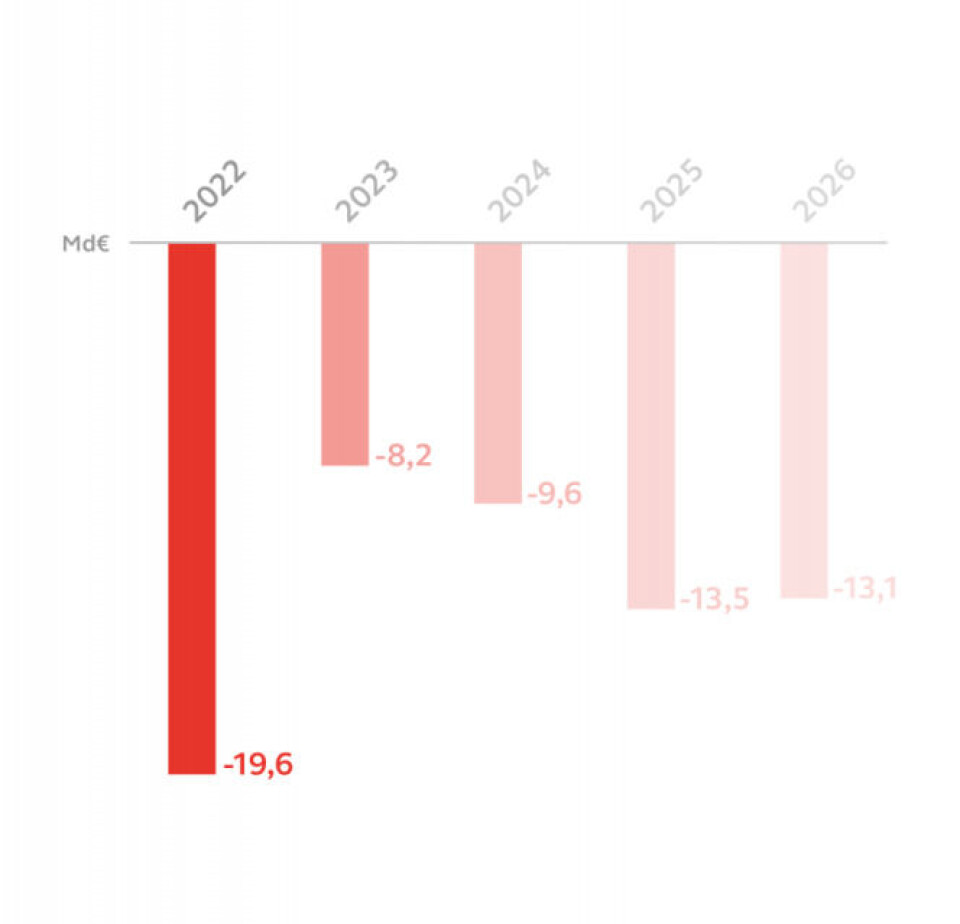-
Pistes closed, confinement orders: Alpine resorts deal with avalanche risk
Increased snowfall this weekend may cause further closures as busy school holiday season continues
-
Former French Interior Minister announces 2027 presidential candidacy
Bruno Retailleau recently asked prefectures to be tough on immigration
-
Ryanair axes Dublin-Rodez route but London connection retained
“We are disappointed but had no say in decision” say airport authorities
More tax on alcohol, sick pay: what will France’s 2024 budget change?
We look at measures reported to be under review in a bid to reduce France’s vastly expanded social security deficit

New levies on alcohol, charges for Covid tests and reducing sick leave are some of the measures reportedly under review by the government to cut France’s growing Social Security deficit in the next budget.
Bruno le Maire, the Minister of the Economy and Finance, is preparing a raft of €12billion of cuts and taxes in September for the 2024 budget, reports le Figaro.
Social Security debt in 2023 is expected to be around €8billion, following an explosion in costs related to the Covid-19 pandemic, and the government is keen to ensure it reaches pre-pandemic levels.
Some politicians have already cautioned Mr le Maire about some of the reported measures, however, including raising taxes on alcohol.
"Alcohol is a delicate topic," said MoDem deputy (MP) Cyrille Isaac-Sibille, “many MPs, ministers and even people higher up won’t hear a word about increased taxes on alcohol”.
Sick leave changes expected to feature
Another measure that could be included is changes to sick-leave, which would see companies be required to contribute more to employees’ sick leave payments.
President Macron’s government had considered implementing such a change in 2020 but due to the pandemic, the plans were put on hold.
Attempts to reduce the number of sick leave days in France – that have jumped from 4 million per year in 2012 to 8.8 million in 2022 – has already been part of the government’s plans in 2023.
They say that doctor’s have been too lenient with offering sick leave to patients, and are looking to crack down on doctors who give too many days off to their patients.
Over 5,000 doctors have already been contacted by the Assurance Maladie, requiring that they justify their medical decisions.
Read more: Doctors under fire over number of sick days they grant French workers
The French Social Security deficit has been high since the Covid-19 pandemic struck in 2020. Over the course of that year, the deficit exploded from €1.7billion in 2019 to €38billion in 2020, when the government introduced extensive support for millions of workers while contending with lower revenues.
The deficit remained high in subsequent years at €21billion in 2021 and €19.6billion in 2022.
While the figures for 2023 are better, with a deficit of €8.2billion projected, the trend for the coming years is for a continuous creep in the deficit due to the ever-increasing burden of retirement and healthcare costs on the French economy.

Read more: France sets its sights on full employment
Government is required to reduce debt
Of course, healthcare costs linked to the pandemic have already decreased. In 2022, the government ceased proposing free Covid testing, offering 70% reimbursement instead.
This could change again, according to the measures currently under consultation, resulting in tests being reimbursed only for vulnerable individuals or for people showing Covid symptoms.
Read also:Covid ‘rebound’ in France: Which areas, and are doctors worried?
Reducing the Social Security deficit is a priority for the government, which must adhere to the yearly targets given in the Public Finance Act (LPFP) of 2022 to reduce France’s global public debt to under 3% of GDP by 2027.
"This is one of the conditions to qualify for various European Union grants," said general rapporteur of the budget Jean-René Cazeneuve to the AFP.
In 2022 France’s public deficit stood at €124.5billion or 4.7 % of GDP according to the Cour des Comptes, France’s supreme audit institution. The Budget for 2024 is expected to be announced in September.
Read also
Why French property tax bills, sent soon, will show big increases
New website in France helps you work out tax for non-EU imports
























